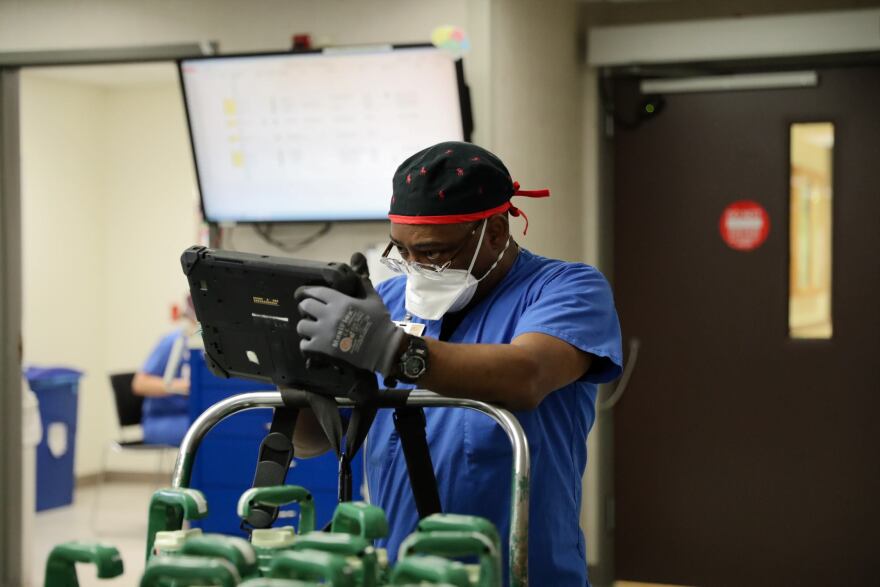Two months aftercanceling most procedures because of the coronavirus pandemic, hospitals in St. Louis are now scheduling elective surgeries for nonemergency patients.
New hospitalizations of COVID-19 patients have begun to level off in the region, and hospital officials say they’re ready to provide nonurgent surgeries, screenings and other procedures. But they plan to put safety precautions in place to protect employees and patients and watch for a potential increase in coronavirus cases.
“We have a significant number of patients we’ve delayed for a couple of weeks,” said Dr. Sameer Siddiqui, a surgeon at SSM Health St. Louis University Hospital. “If we delay much longer, their situation is going to become much more urgent.”
The three largest health systems in St. Louis — SSM Health, BJC Healthcare and Mercy Health — will all be seeing nonemergency patients when local officials ease the stay-at-home orders in St. Louis and St. Louis County on Monday.
SSM and Mercy are phasing in elective procedures gradually. Doctors will schedule procedures for patients with cancer and other serious conditions first.
“There’s a number of patients out there we’re calling essential patients that maybe weren’t emergent but their condition would say they should get in sooner rather than later,” Mercy Regional President Jeff Johnston said. “We’re prioritizing those patients and getting them rescheduled.”
“We have a fair number of sick patients patients with fairly significant medical diagnoses, and we’ve really put their treatment on hold,” Siddiqui said. He created a tiered systemfor reintroducing surgical procedures that has been adopted by SSM and other hospitals across the country.
Patient needs don’t always fall cleanly into emergency or elective categories, said Dr. Bruce Hall, vice president of BJC HealthCare.
For example, a person may have a suspicious mole that could be cancerous or a painful knee injury that needs surgery. Doctors could put off scheduling an appointment for those problems for weeks, but not indefinitely.
Even though procedures are starting up again, patients will have a different experience when they go to the hospital, Hall said. Employees will be wearing masks and extra protective equipment, and patients will need to observe social distancing measures.
The Missouri Hospital Association recommends health systems provide coronavirus tests for incoming patients and ensure workers have proper protective equipment before resuming procedures.
Doctors will need to test some patients for the coronavirus a few days before certain surgeries or other procedures, Johnston said.
Hospitals will need to balance treating the nonemergency patients with caring for those with COVID-19, said Dr. Hillary Babcock, an infectious diseases specialist at Barnes-Jewish Hospital.
“It’s not like we get to stop doing COVID operations or COVID work and start working on resuming other clinical operations,” Babcock said.
Health officials also need to be prepared to ramp down nonurgent procedures if they see a surge of new patients with the disease, Babcock said. Disease experts have predicted another surge in cases could happen in the summer or fall.
“In case we have to turn the volume back down again, we think it’s important to take care of as many people as we can while we have the chance,” Hall said.
Follow Sarah on Twitter: @petit_smudge
Our priority is you. Support coverage that’s reliable, trustworthy and more essential than ever. Donate today.
Send questions and comments about this story to feedback@stlpublicradio.org






